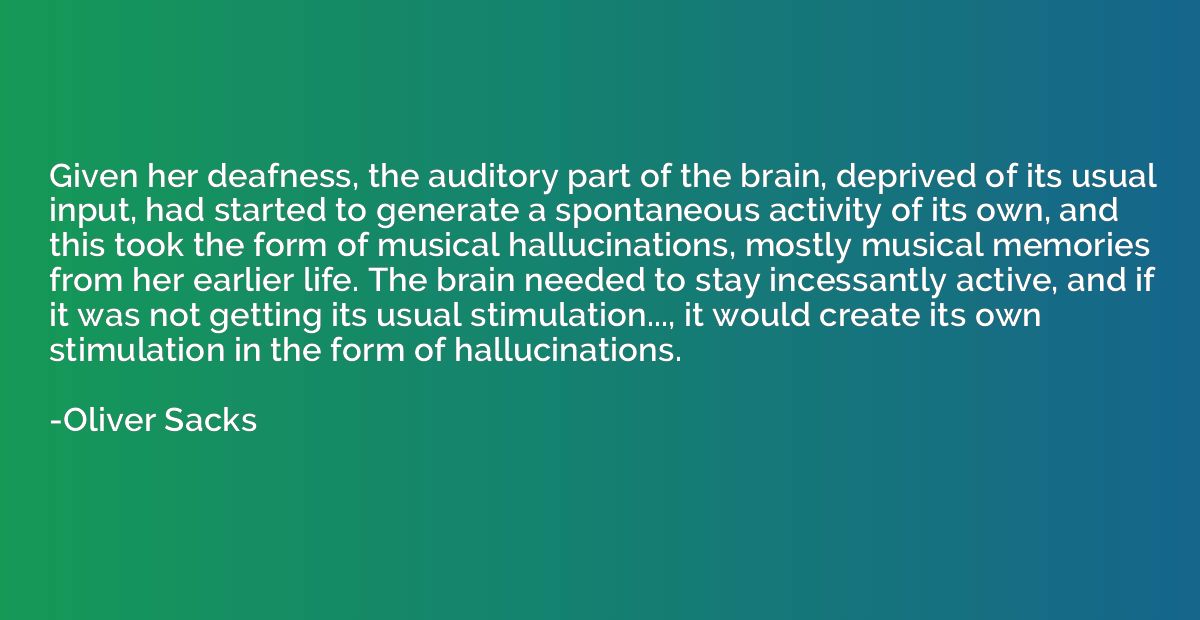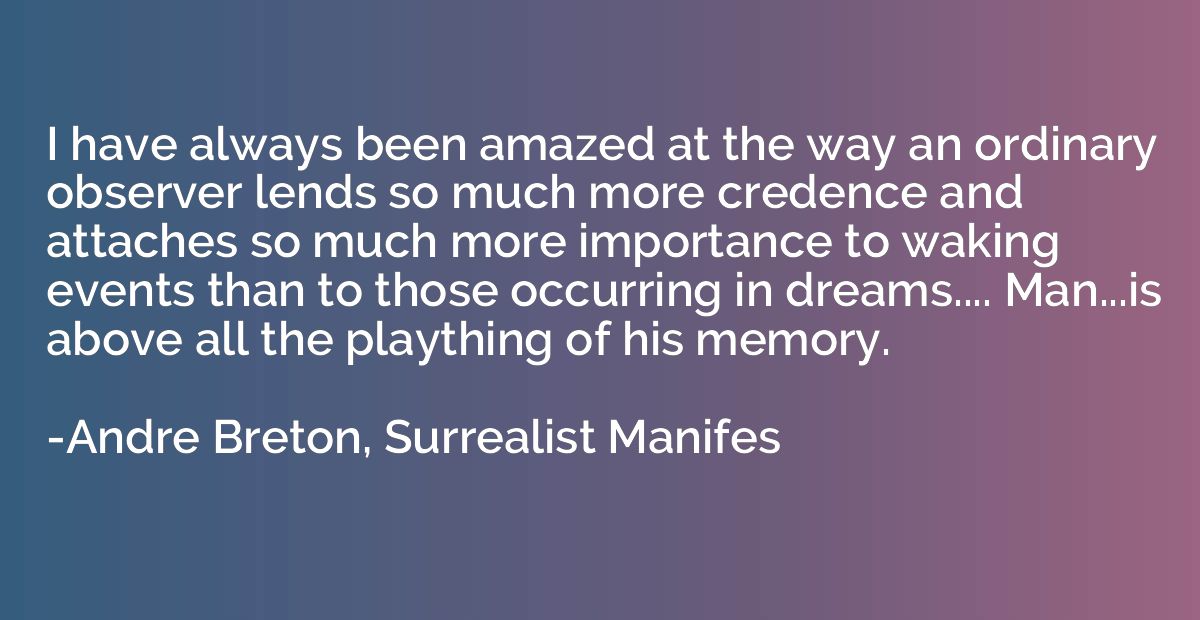Quote by Oliver Sacks
Given her deafness, the auditory part of the brain, deprived of its usual input, had started to generate a spontaneous activity of its own, and this took the form of musical hallucinations, mostly musical memories from her earlier life. The brain needed to stay incessantly active, and if it was not getting its usual stimulation..., it would create its own stimulation in the form of hallucinations.

Summary
This quote explains how the brain can adapt and compensate for the lack of external stimulation in certain sensory faculties, like hearing in the case of someone who is deaf. When the auditory part of the brain is not receiving its usual input, it generates its own activity in the form of musical hallucinations. These hallucinations are often memories of music from the individual's past. The brain's need for constant activity drives it to produce these hallucinations as a way of creating its own stimulation when the usual sensory input is absent.
Topics
Music Science Psychology Neuroscience Cognitive Neuroscience Hallucinations Musical Hallucinations
By Oliver Sacks














